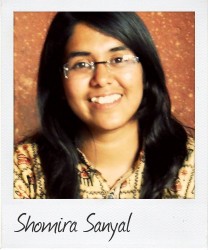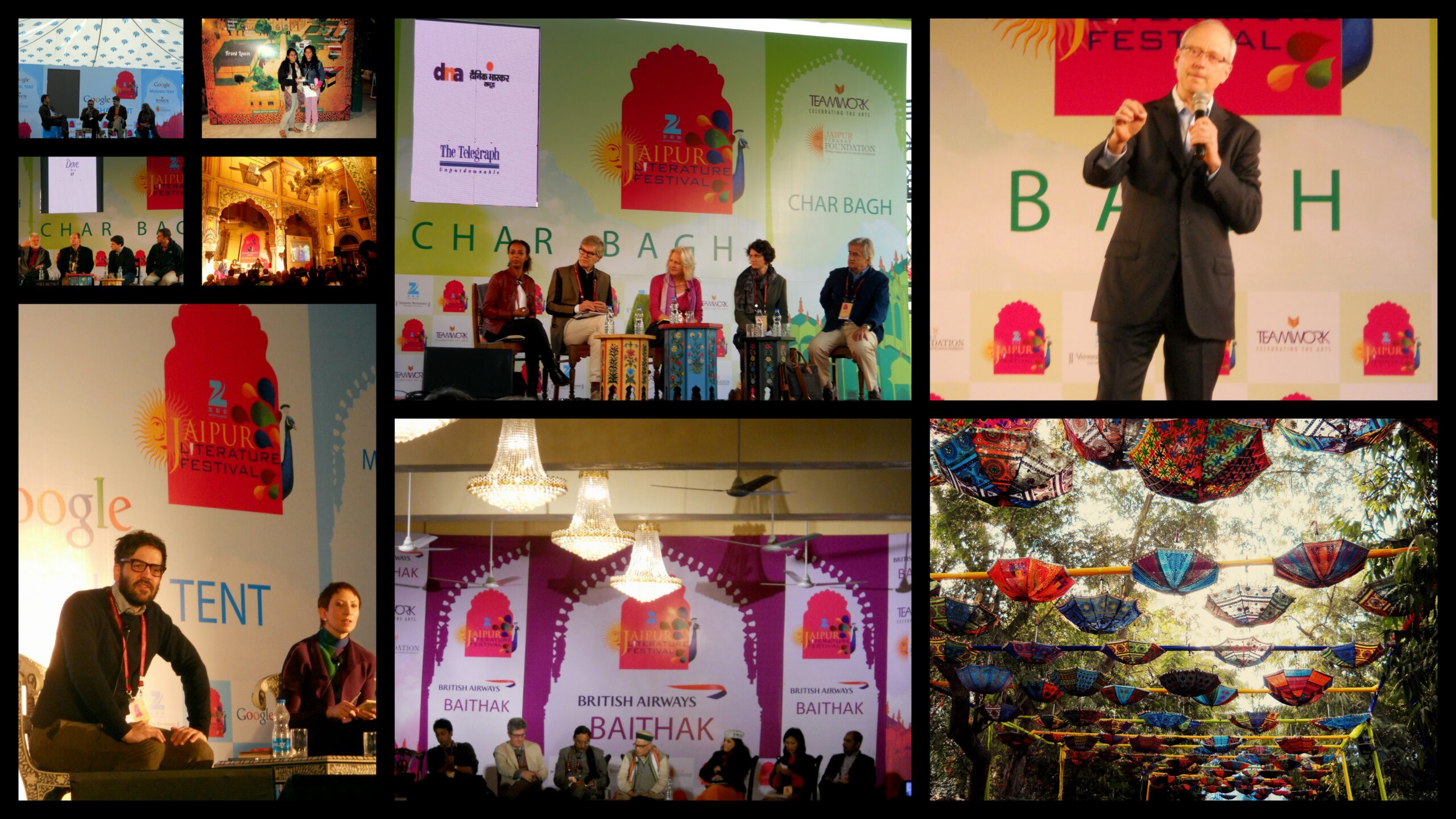“Festival offers the high-lit of the literary season!”
February 12 As a first-time attendee of the festival, Shomira Sanyal, 19, a Commonwealth Correspondent from New Delhi in India says that she was thoroughly spoiled in attending the Jaipur Literature Festival, Asia’s largest and the world’s biggest free lit-fest.
As a first-time attendee of the festival, Shomira Sanyal, 19, a Commonwealth Correspondent from New Delhi in India says that she was thoroughly spoiled in attending the Jaipur Literature Festival, Asia’s largest and the world’s biggest free lit-fest.
The city of Jaipur recently saw literature enthusiasts from all corners of the world coming to attend the famous Jaipur Literature Festival.
It was held this year from the 17th – 21st of January at the beautiful Diggi Palace and sponsored by Zee. Started in 2006, the festival has become synonymous with engaging sessions by authors, Nobel Laureates, media persons, publishers, people from the film industry, and political figures – all spanning a five-day period each year in the month of January. Organized by authors William Dalrymple and Namita Gokhale, and producers Sanjoy Roy and Sheuli Sethi, the Jaipur Literature Festival is not only Asia’s largest lit-fest, but also the biggest free lit-fest in the world.
This year, the festival was bigger and better, with speakers spanning a large number of nations, from the USA, to Egypt and Iran, Bangladesh and so on. The keynote address on the first day was given by none other than celebrated economist and Nobel Laureate Amartya Sen.
Apart from him, other speakers included Booker-Prize nominated author Jhumpa Lahiri, Pulitzer Prize award holder Mark Mazzetti, Nobel Laureate Dr. Harold Varmus, author Anthony Beevor, sociologist Dipankar Gupta, feminist Gloria Steinem, lyricist Prasoon Joshi, actor Irrfan Khan, columnist Bachi Karkaria, chef Vikas Khanna and political philosopher at Harvard, Michael Sandel to name a few.
In all, 175 sessions were conducted, with multiple sessions taking place at various points of time in five different venues within the palace – CHAR Bagh, Front Lawns, GOOGLE Mughal Tent, BRITISH AIRWAYS Baithak, MAHINDRA Durbar Hall and FORD Samvad.
The topics were wide-ranging, from philosophy to media, and crime, punishment and literature to physics and democracy. The best thing about the festival was the variety it had to offer the thousands of participants and the platform for discussion, debate and interaction with the speakers. There was a lot in terms of subject matter to discover, experiment and dabble with, and it was the perfect platform for the young and old to be exposed to all kinds of ideas and perspectives.
Despite the dampening weather, the enthusiasm was at an all-time high, with seats filling up quicker than they were emptied and people having to sit in the aisles just to hear the speakers! The bookshop too had a lot of customers, and people were also seen queuing up in serpentine lines to get books signed by various authors.
Certain sessions were more popular than others, but this did not mean that the ones less attended were any less good. Even though some presenters did pull out at the last minute, the sessions were conducted beautifully, in a manner that did not let their absence be felt.
As a first-time attendee of the fest, I was thoroughly spoilt for choice! I felt glad to attend enriching sessions such as ‘Prisons of the Mind’, ‘The Literature of War and Revolution’, ‘Chronicles of Conflict and Change’, ‘Justice: What’s The Right Thing To Do?’, ‘The Living Goddess’, ‘Sex and the Citadel’, and ‘Reimagining Partition’ to name a few.
The highlight of the festival was the last session, which was a debate on the topic of ‘Democracy is the Worst Form of Government, except for all the Rest’. The panel consisted of Indian politicians Murli Manohar Joshi and Shazia Ilmi, Bangladeshi author Kazi Anis Ahmed, Lily Wangchuk, the leader of a political party in Bhutan, Peter Godwin, Indrajit Hazra and Pavan Verma. The venue was jam-packed; the debate engaging and provoking. The plethora of views on democracy was fascinating to hear, and sharp questions from the audience were satisfying.
All in all, the fest was thoroughly satisfying, intellectually and otherwise. The beautiful venue added its own charm and the effort that went into making it a success did not go unappreciated by all those who attended.
The website is: www.jaipurliteraturefestival.org, for those who are interested in knowing more about the speakers and sessions. The videos of the sessions are already up on YouTube as well!
The dates for the next year’s edition of the Jaipur Literature Festival are 21st – 25th January, 2015. Hope many of you will visit and take back something from it, just like I did!
………………………………………………………………………………………………………………
About me:
I am pursuing a Bachelor’s Degree in Sociology at Lady Shri Ram College, New Delhi. I enjoy reading, travelling and meeting people. I have deep interest in developmental work that will improve the lives of India’s marginalized. I have worked in rural India with NGOs including the Right to Information, the Right to Food, the Public Distribution System, and the Mahatma Gandhi National Rural Employment Guarantee Scheme. I believe in the Gandhian saying, “Be the change you want to see”.
………………………………………………………………………………………………………………
Opinions expressed in this article are those of the author and do not necessarily represent the views of the Commonwealth Youth Programme. Articles are published in a spirit of dialogue, respect and understanding. If you disagree, why not submit a response?
To learn more about becoming a Commonwealth Correspondent please visit:
http://www.yourcommonwealth.org/submit-articles/commonwealthcorrespondents/
………………………………………………………………………………………………………………




